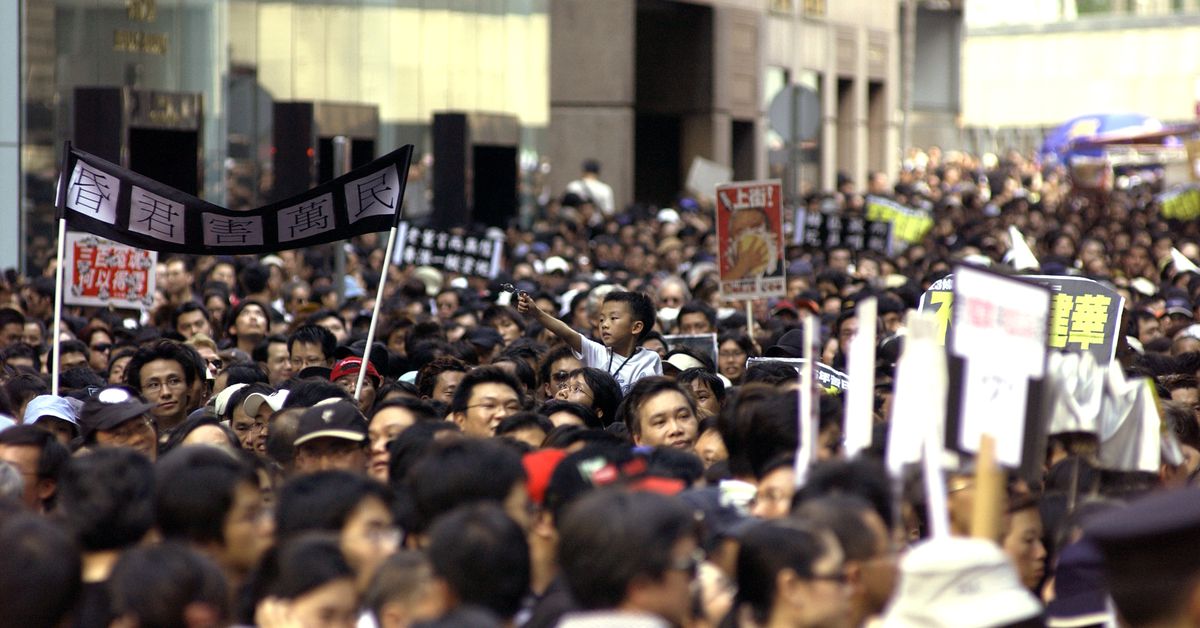- cross-posted to:
- globalnews@lemmy.zip
- china@sopuli.xyz
- cross-posted to:
- globalnews@lemmy.zip
- china@sopuli.xyz
21 years ago, half a million Hong Kongers took to the streets to stop Article 23. This month, Beijing finally won.
Last week, the government of Hong Kong published the latest of a series of increasingly draconian national security laws. This one will target espionage, treason, and foreign political interference, and those found guilty of violating some of its tenets could be sentenced to life imprisonment.
This might sound niche or even well-intentioned; doesn’t the US have its own fears about foreign political interference in its elections? But this isn’t really about national security. It is, as Human Rights Watch put it, “Beijing’s latest effort to transform Hong Kong from a free society to an oppressed one where people live in fear.”
That effort has been underway at varying speeds since Hong Kong was returned to Beijing’s control in 1997. It is now all but complete.
Despite complaints from foreign governments, from what remains of Hong Kong civil society, and even from the city’s increasingly beleaguered international business community, Hong Kong’s now opposition-less legislature will almost assuredly fast-track it into law.



More like 1997, or even 1983, when the UK handed them back to China, or the earlier date, when they decided to prevent them from having British citizenship.
If everyone in Hong Kong had the right to emigrate to any British territory, China would have to be a lot lighter touched there, or there might be a mass exodus.
There was a period in the early 2000’s where China showed genuine signs it might open up and become somewhat democratic, giving its citizens greater rights and representation. Obviously they decided to revert to their authoritarian ways and brutally crack down on dissent to keep control over the people, but there was a time HK might’ve had a nice future under China.